
The Bottom Line
Introduction & Drive Details
As it stands today, Phison's E16 Gen4 controller is the most successful Gen4 controller ever made. There have been countless SSDs based on the world's first Gen4 consumer NVMe controller. From day one, TeamGroup has been onboard with Gen4 and has collaborated exclusively with Phison to release Gen4 consumer NVMe SSDs. One of the first Gen4 SSDs on the scene was TeamGroup's Cardea Zero Z440. At the time, it was the first Gen4 SSD that didn't have a large heat sink attached from the factory.
The Cardea Zero Z440 came with an ultra-thin graphene and copper thermal label that proved to be quite effective at taming thermals generated by a Gen4 interface. Additionally, the Cardea Zero proved to be the best performing E16-based SSD we had tested. We can attribute the Cardea Zero's better than most performance to TeamGroup's practice of selecting the best-binned components for their flagship offerings.
Now TeamGroup has taken their Flagship E16 offering to new heights with more mature NAND and an even better cooling solution. TeamGroup's Cardea Ceramic C440 is the first SSD we've seen with a ceramic label/heat sink for heat dissipation. The drive's ceramic label is quite effective, as evidenced by the below image:
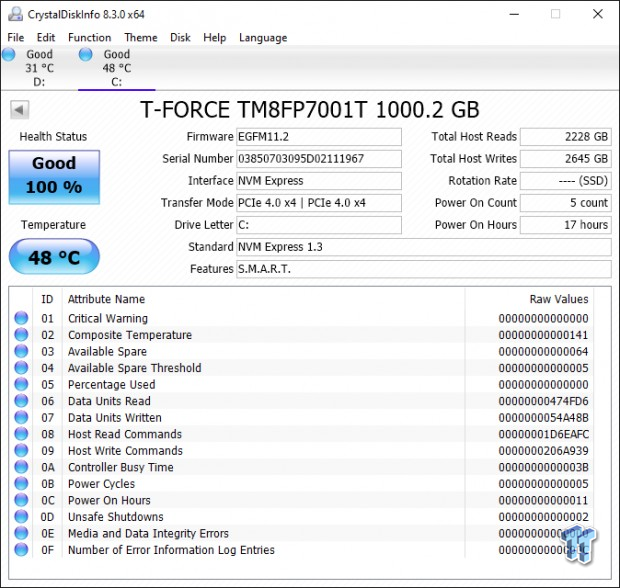
This temperature was taken at the competition of writing over 300GB of data to the drive to fill it 50 percent. A temperature of 48c is about 12c lower than we normally see from an E16 SSD without a heat sink. Impressive and verification that the ceramic thermal label works as advertised.
Okay, let's get into the review so we show you firsthand what has proven to be the best-performing E16-based SSD we've tested to date can do for you.
Drive Details
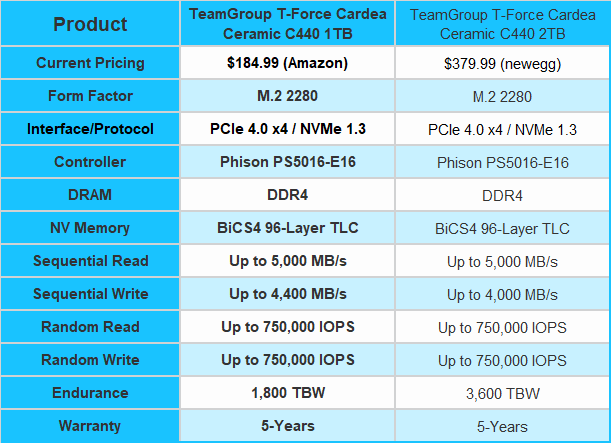
We note the Cardea Ceramic C440 has an excellent price point for a powerful Gen4 SSD. Nice.
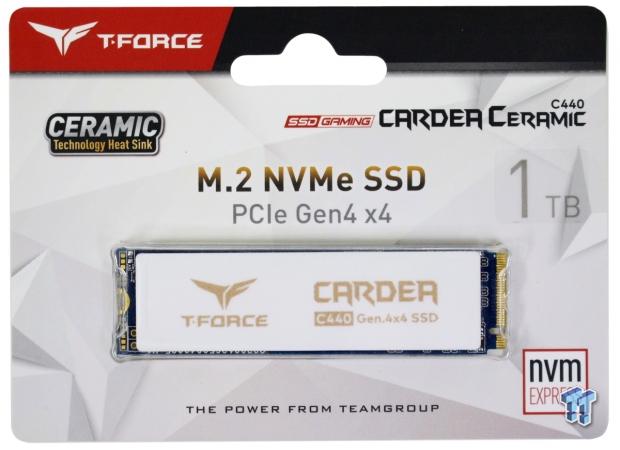
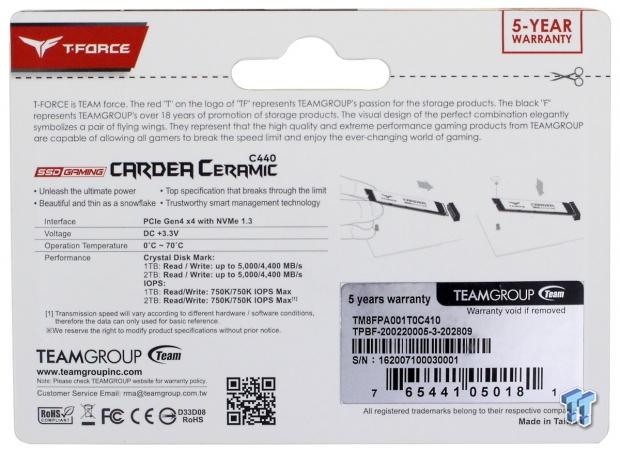


Jon's Test System Specifications
- Motherboard: ASUS ROG Crosshair Hero VIII Wi-Fi (buy from Amazon)
- CPU: AMD Ryzen 9 3900X (buy from Amazon)
- Cooler: ARCTIC Liquid Freezer II 280 (buy from Amazon)
- Memory: ADATA XPG Z1 DDR4 3800MHz 16GB (buy from Amazon)
- Video Card: Sapphire Radeon RX Vega 64 (buy from Amazon)
- Power Supply: Corsair AX1000 (buy from Amazon)
- Case: InWin X-Frame
- OS: Microsoft Windows 10 Pro 64-bit (buy from Amazon)
SSD Software
T-Force Toolbox
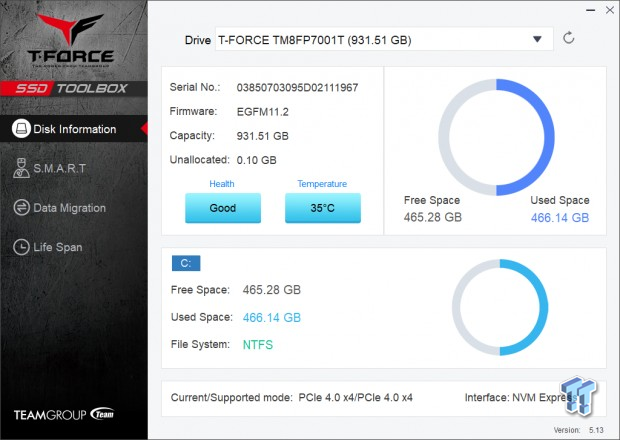
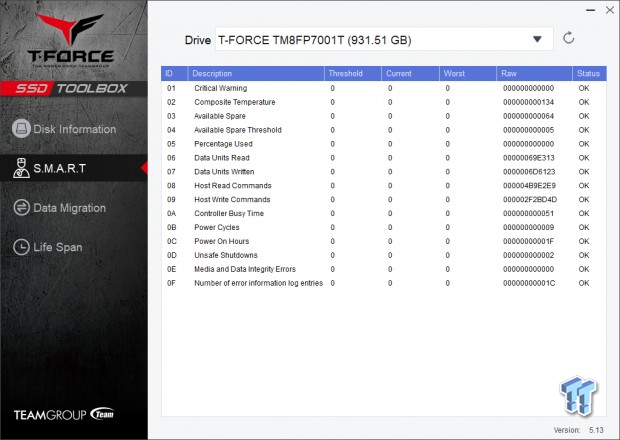
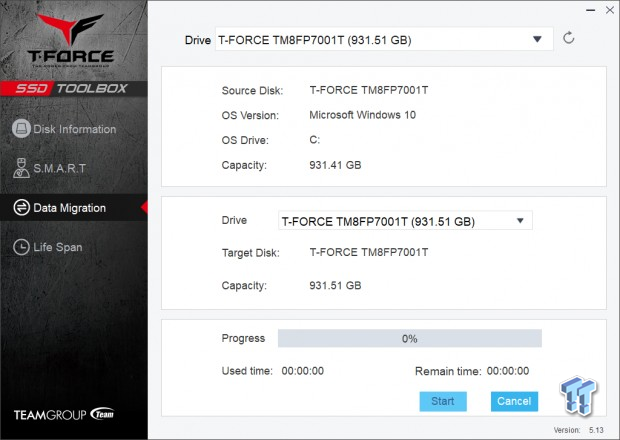
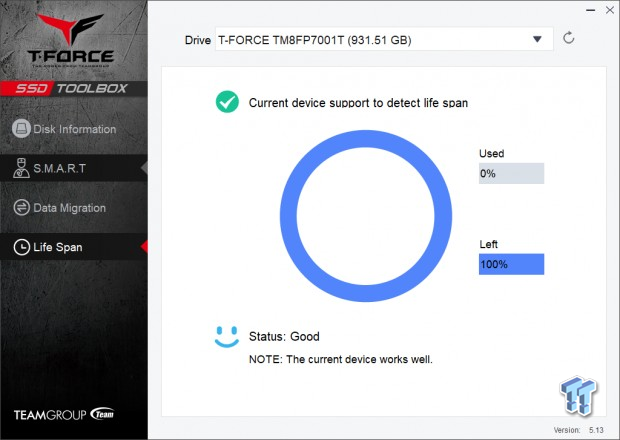
We could find a TeamGroup SSD Toolbox online, but it's not easy to find or even available directly from TeamGroup as far as we can tell. We had to download it from a driver update site, so we will not be providing a link to it.
You will be better served with the following free tools:
If you need to clone, there is freeware for that Click here to download and free monitoring software Click here to download as well.
Synthetic Benchmarks: CDM & Anvils
CrystalDiskMark
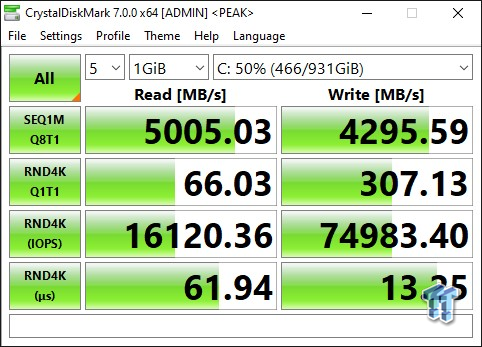
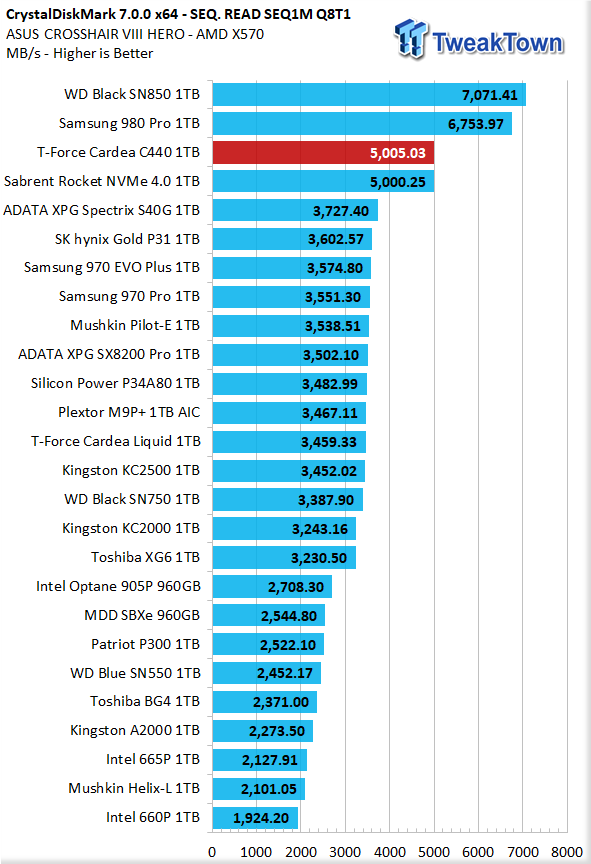
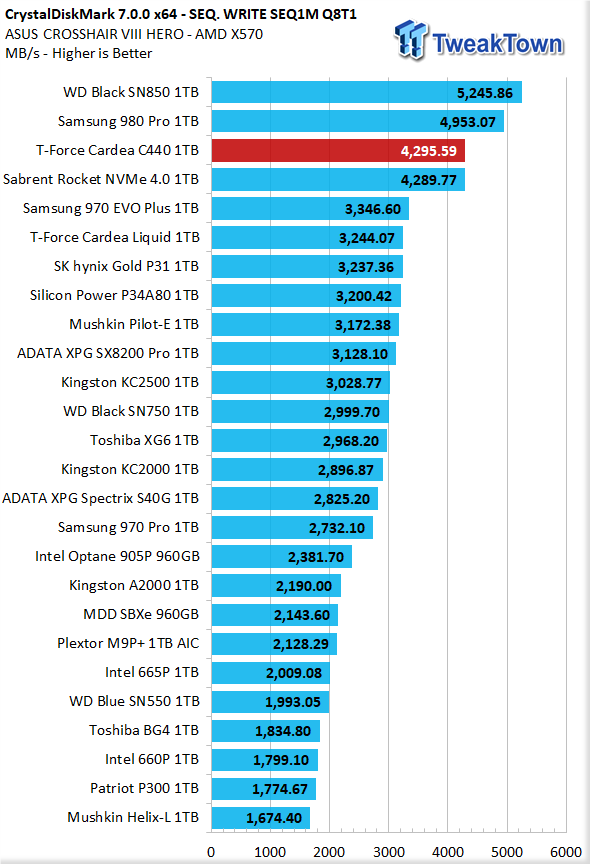
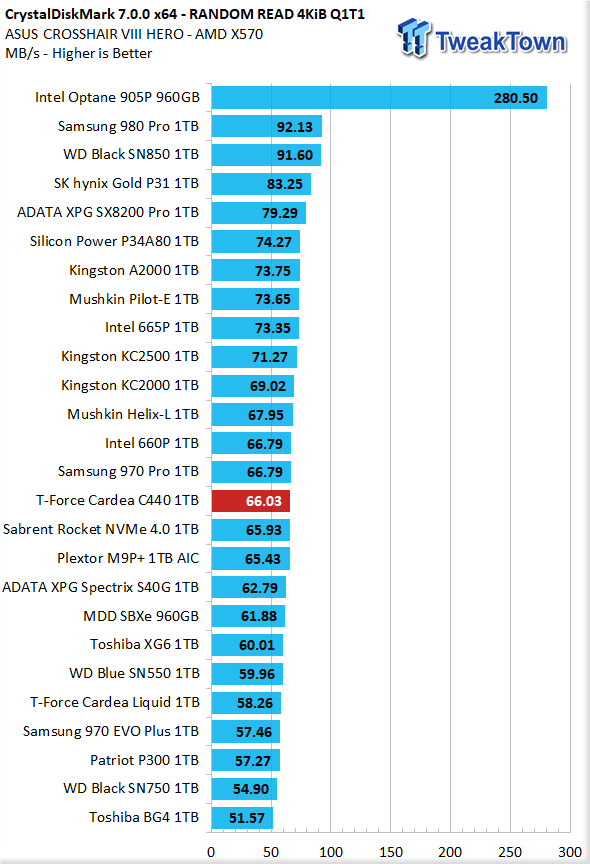
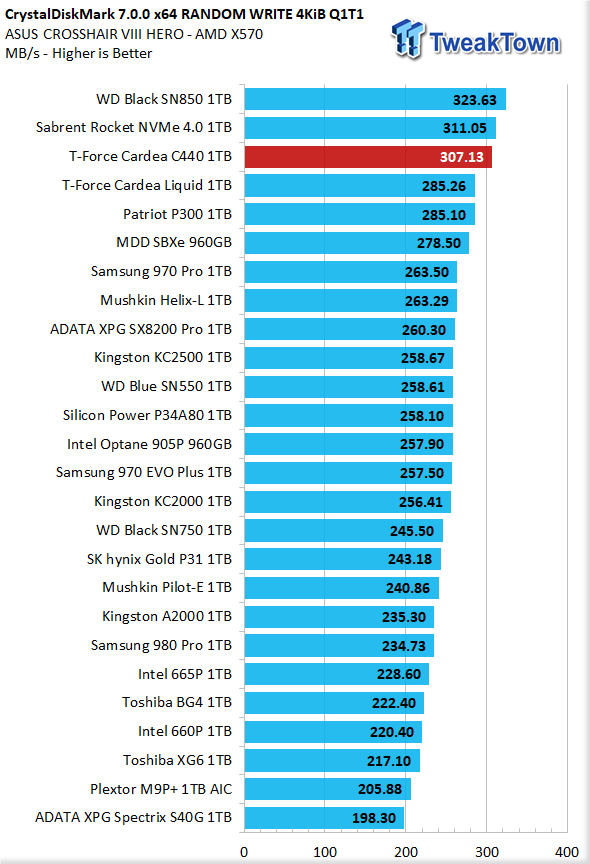
Excellent performance across the board. We easily hit the advertised sequential read speed of 5,000 MB/s, but as we've seen from day one, an E16-powered SSD cannot hit advertised sequential write speeds when filled 50 percent with data.
Anvil's Storage Utilities
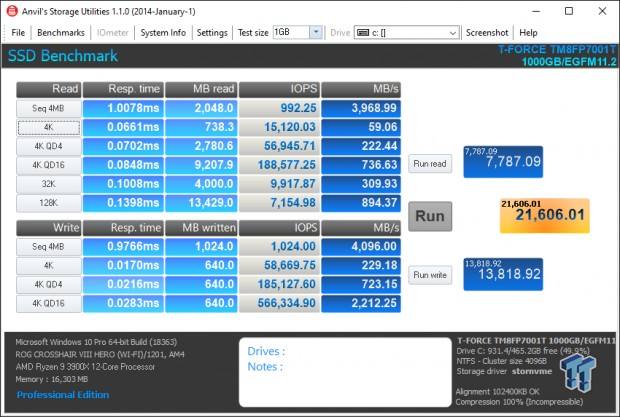
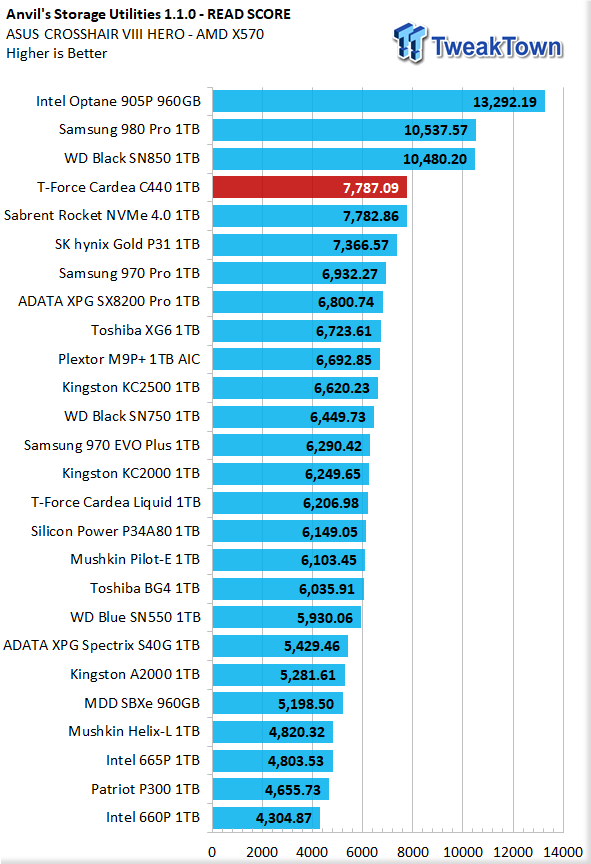
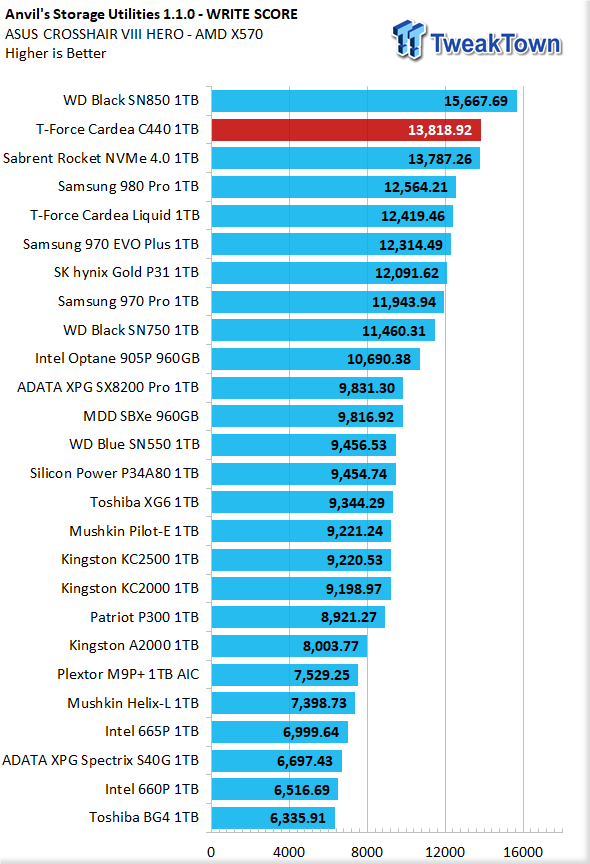
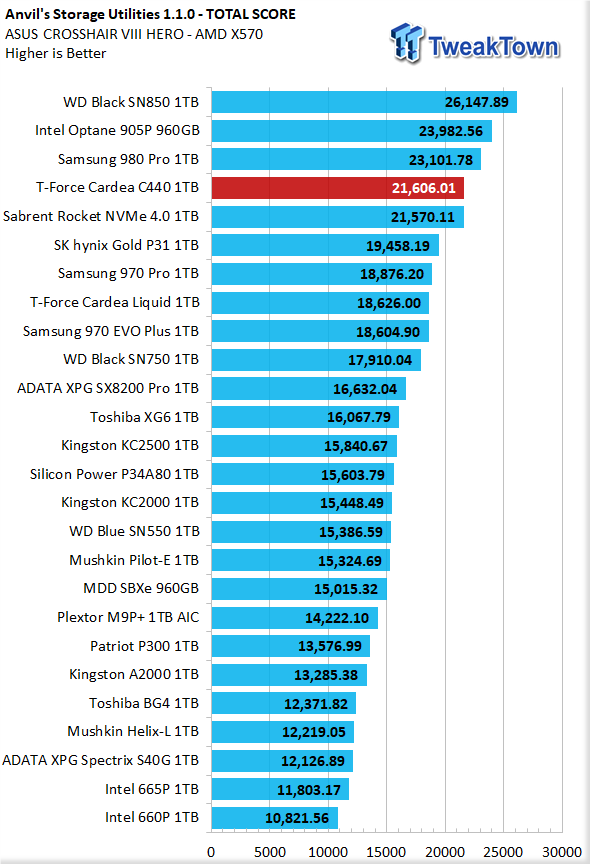
The Cardea Ceramic C440 gives us exactly what we want to see from an E16 powered SSD. A total read score of 7,700 and an overall score that exceeds 21K. On top of that, the Cardea C440 does so while running nice and cool thanks to its ceramic cooling plate/thermal label.
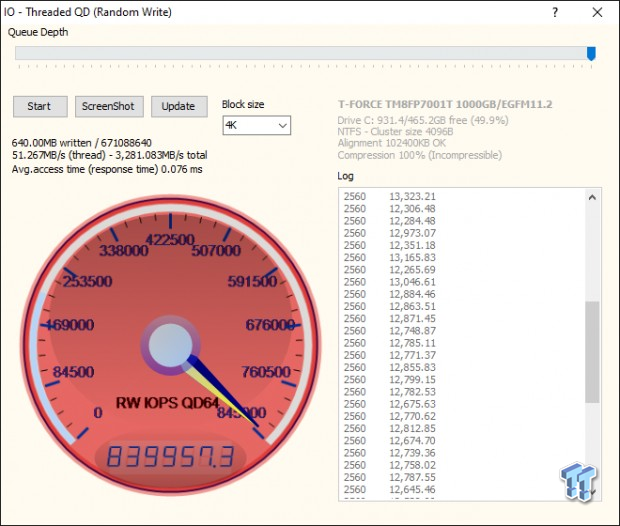
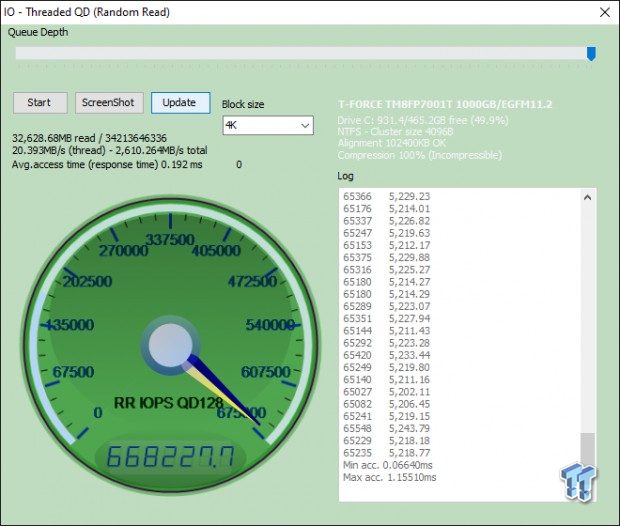
As expected, we can easily exceed factory specs for max random write, and as expected, we can't quite get there for max random reads because of our more demanding user state. Nevertheless, a good showing.
Synthetic Benchmarks: AS SSD & ATTO
AS SSD
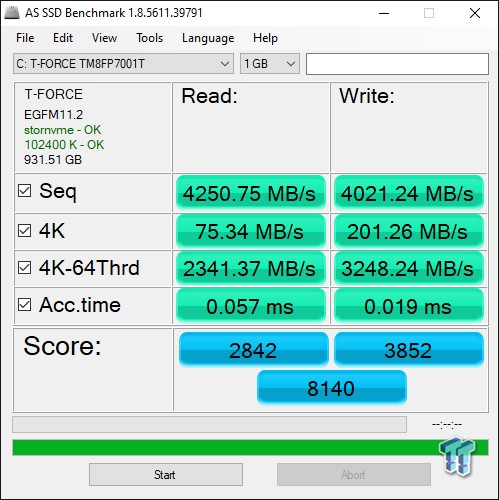
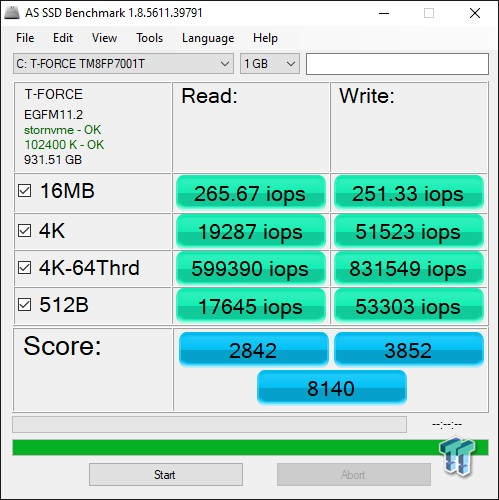
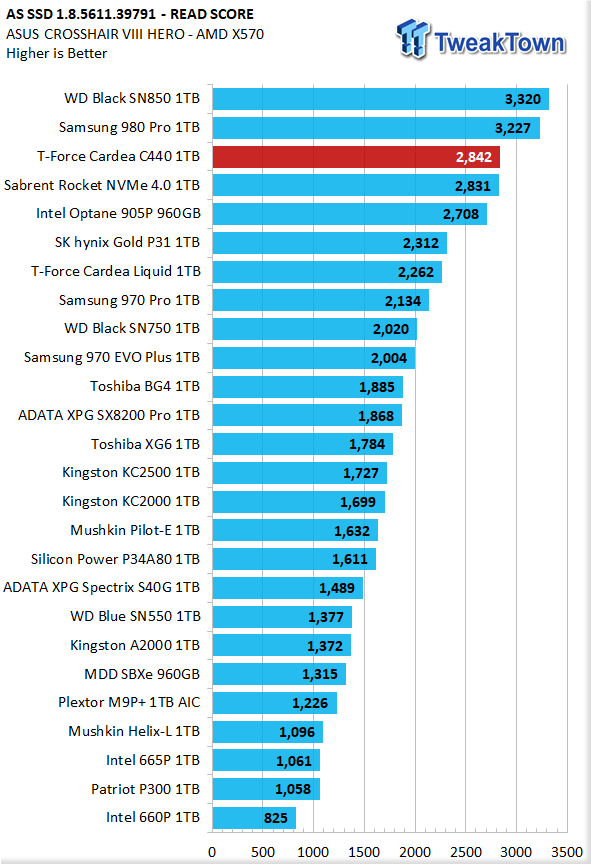
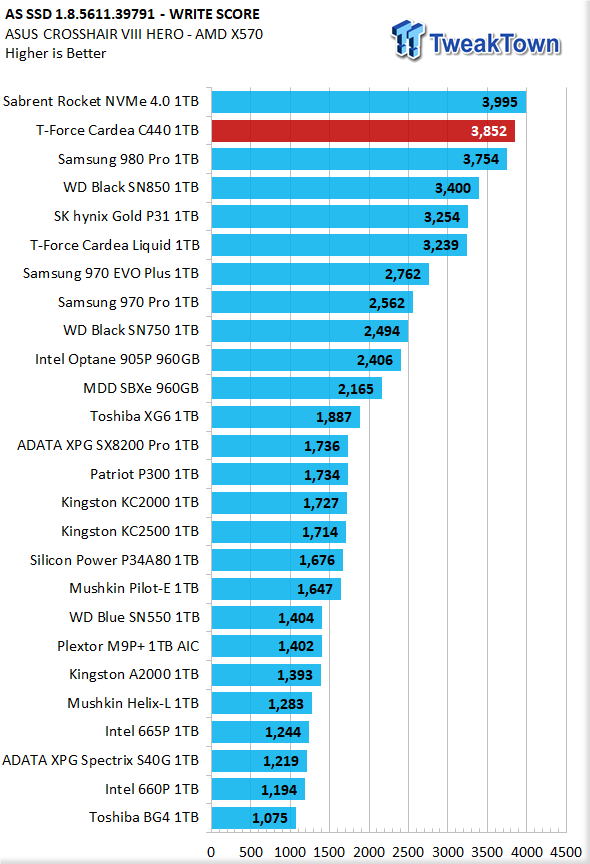
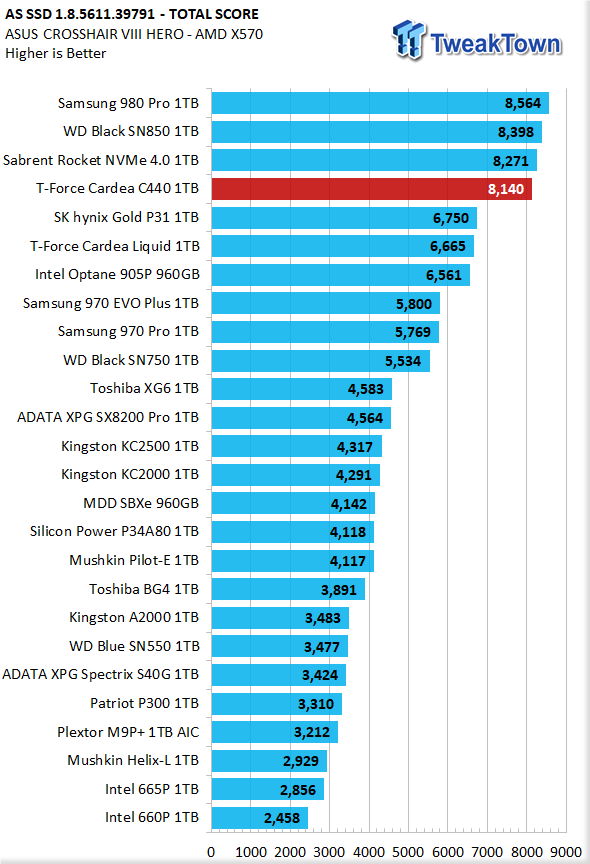
As is common for Phison powered SSDs, the Cardea C440 rips right through AS SSD and rewards us with one of the best scores we've recorded to date. Excellent.
ATTO
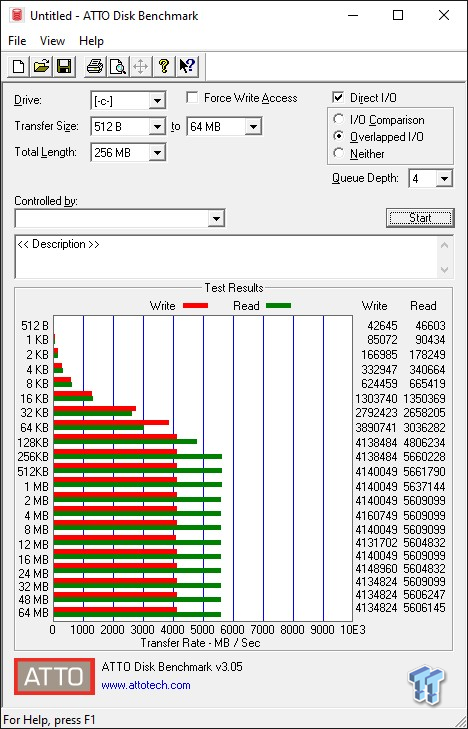
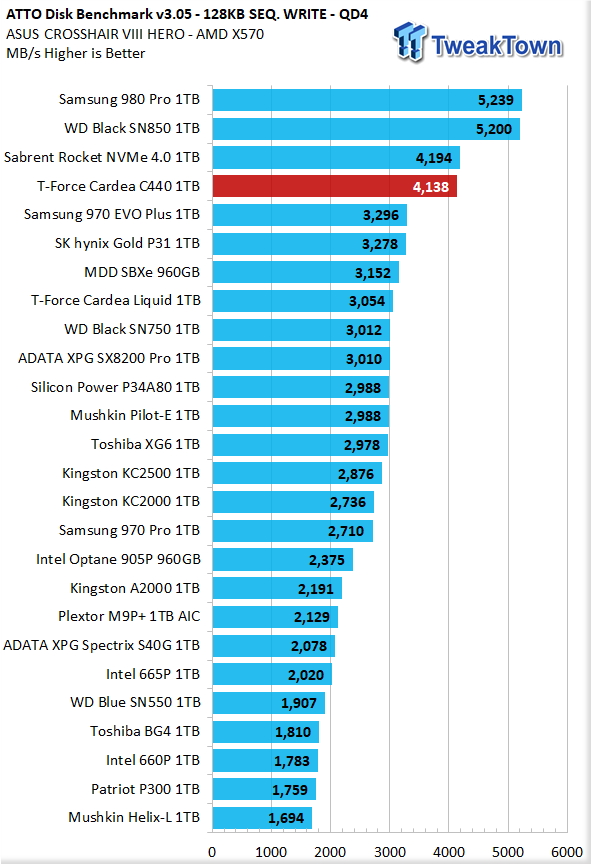
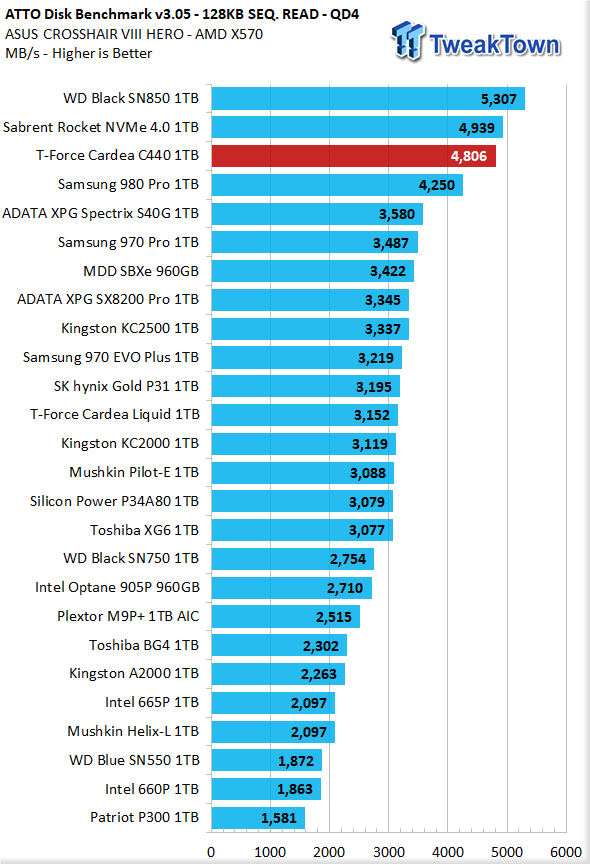
Great performance at 512B transfers and close to full speed at 128K transfers. As we can see by this test, when the C440 is dealing with compressible data that is sequential in nature, the drive is capable of reading data at an incredible 5.6 GB/s.
Real-World Testing: Transfer Rates & Gaming
Transfer Rates
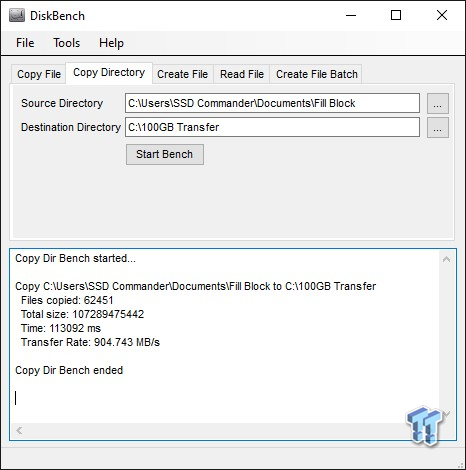
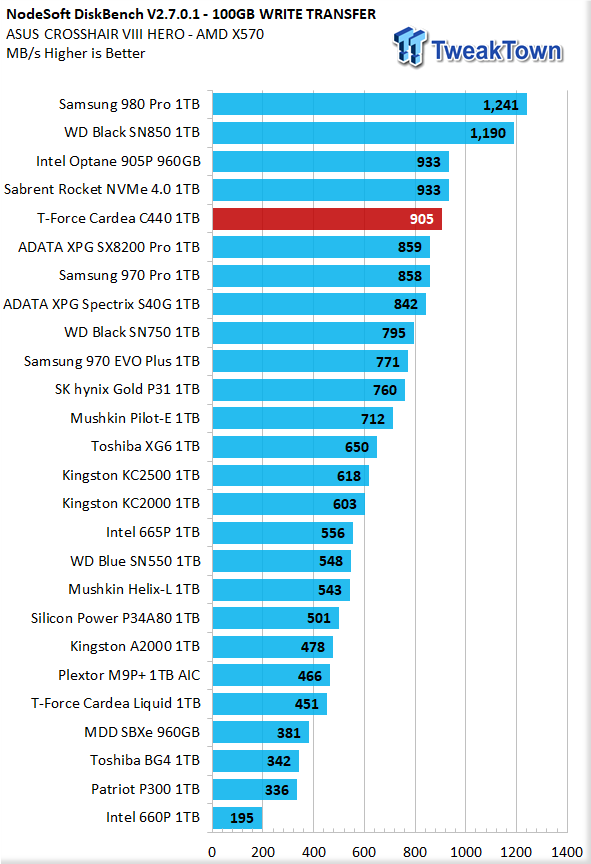
As expected, the Cardea C440 is hovering at the top of our chart yet again.
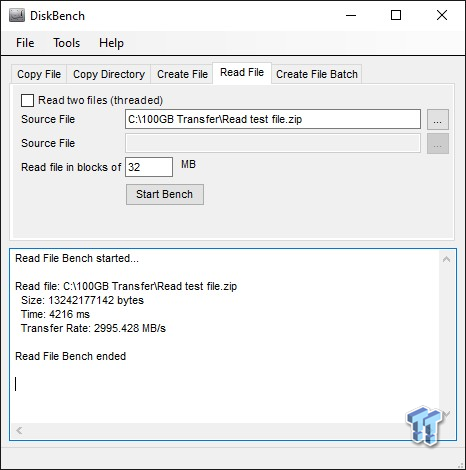
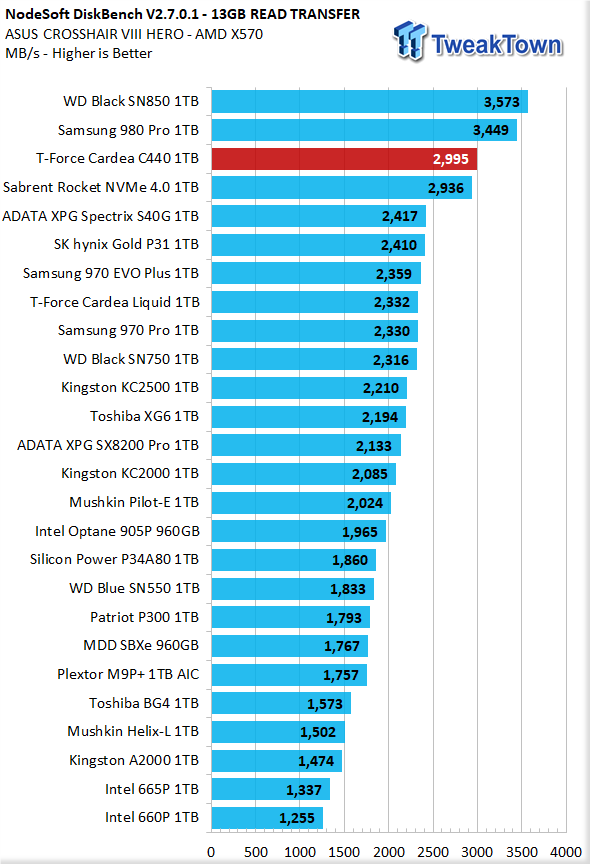
When serving data to the host, the Cardea C440 manages an eye-popping average of 2,995 MB/s. Again, excellent performance.
Game Level Loading
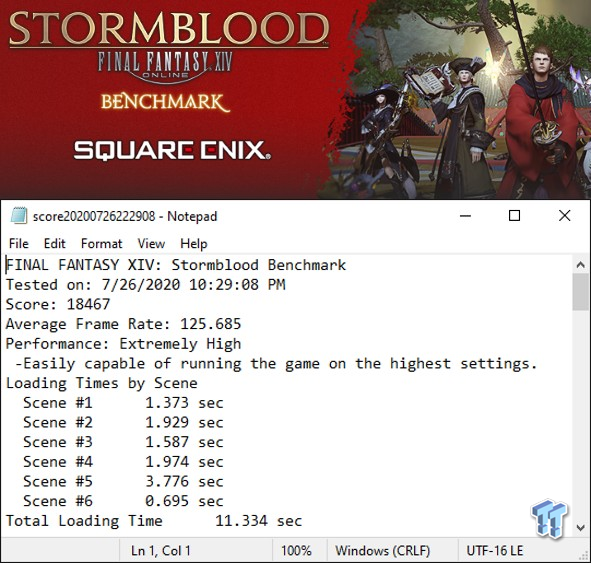
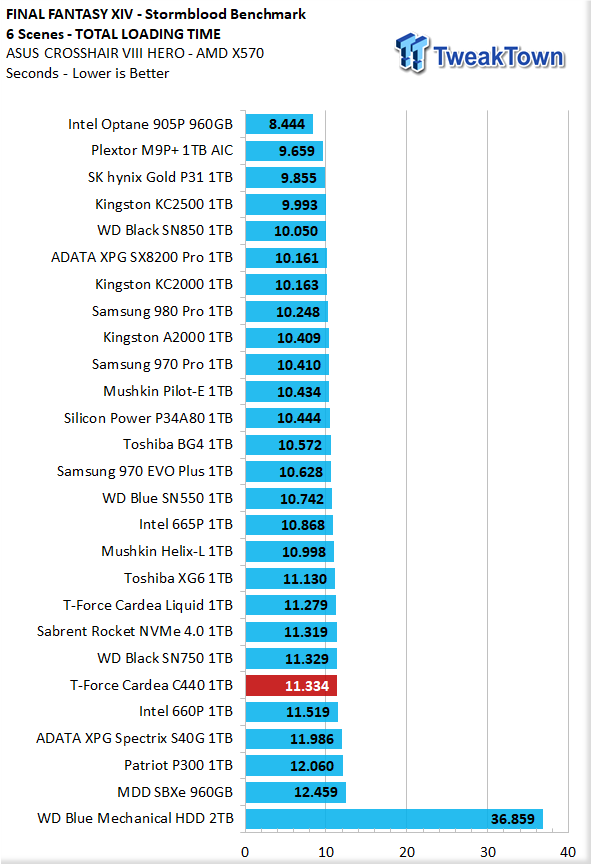
We are on the lookout for sub-11 second performances, and as expected, the E16 powered Cardea C440 can't quite get there. Still plenty fast unless we want to split hairs over fractions of a second.
Real-World Testing: PCMark 10 Storage Tests
PCMark 10 Storage Test is the most advanced and most accurate real-world consumer storage test ever made. There are four different tests you can choose from; we run two of them.
The Full System Drive Benchmark and the Quick System Drive Benchmark. The Full System Drive Benchmark writes 204 GB of data over the duration of the test. The Quick System Drive Benchmark writes 23 GB of data over the duration of the test. These tests directly correlate with user experience. Of the two tests, we feel that the Quick System Drive Test most accurately replicates a typical user experience.
PCMark 10 Full System Drive Benchmark
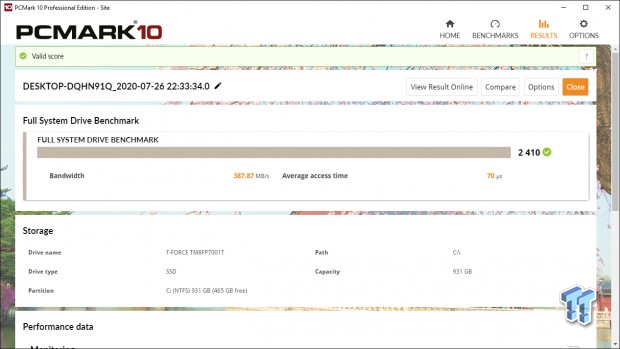
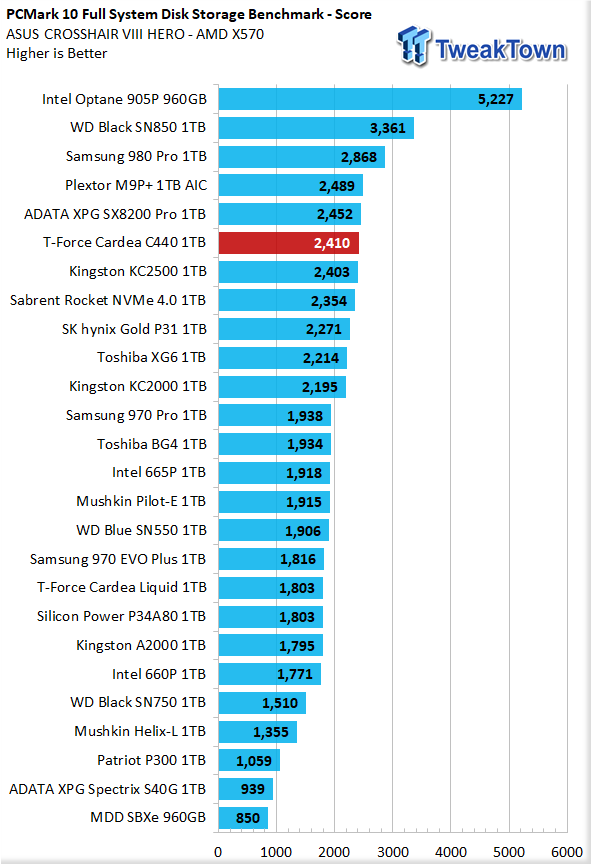
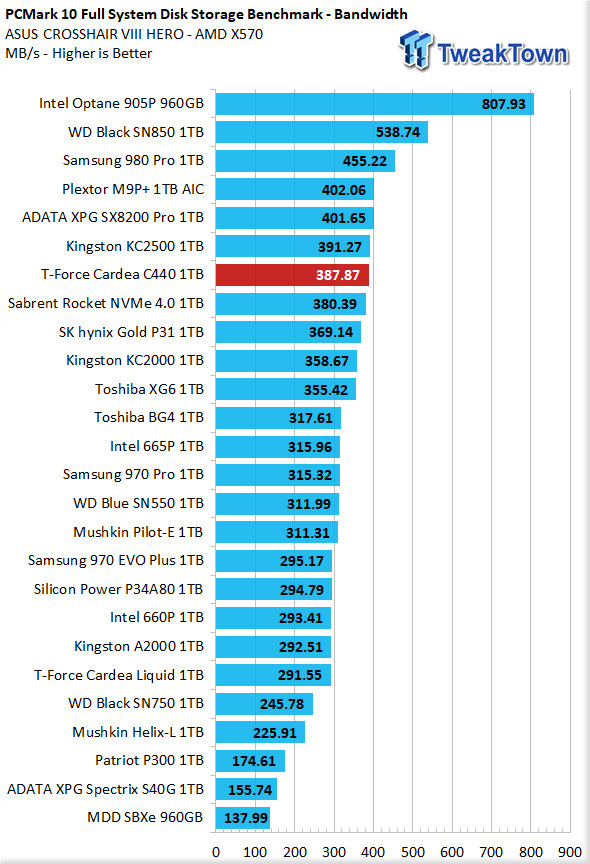
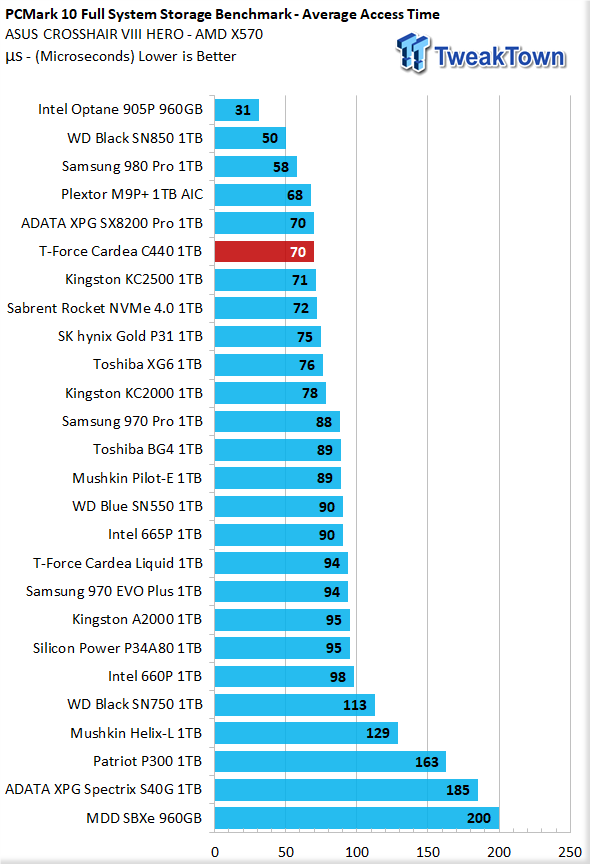
If you are working with heavy prosumer type workloads, then you can't do much better than the Cardea Ceramic C440. Additionally, it is worth bringing to your attention that the Cardea Ceramic C440 has a 5-year warranty and the best endurance rating for any consumer flash-based SSD on the market. Also noteworthy is the score, as it's the best we've seen from an E16-powered SSD.
PCMark 10 Quick System Drive Benchmark
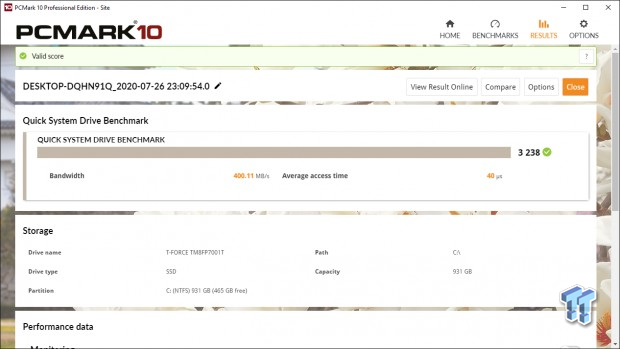
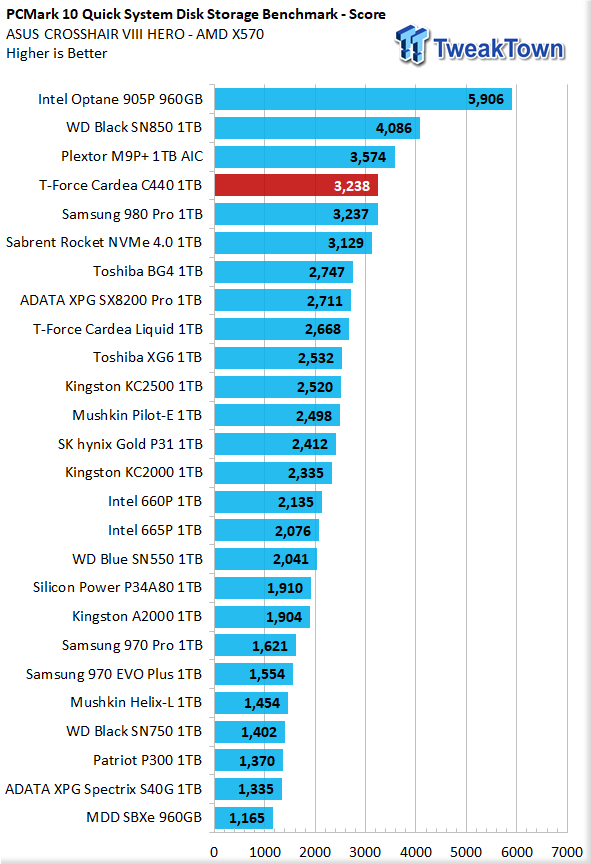
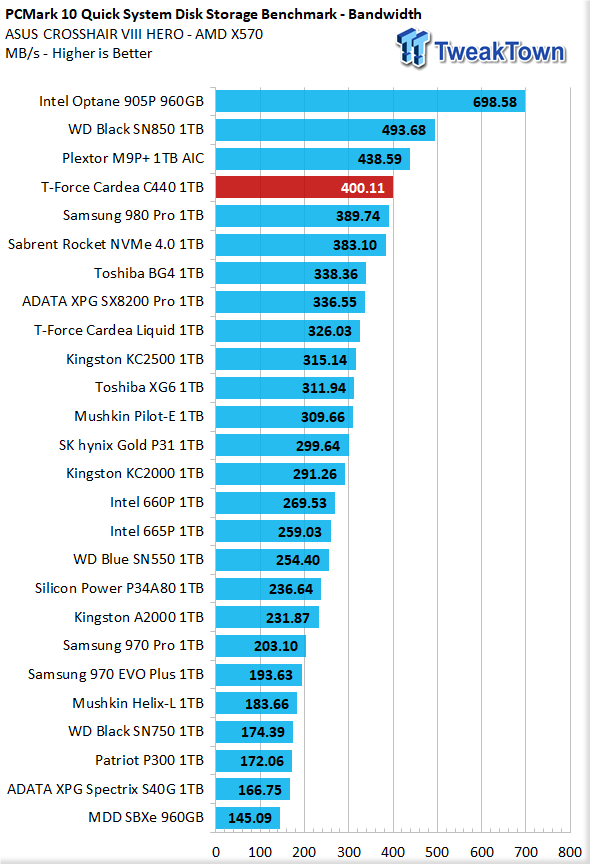
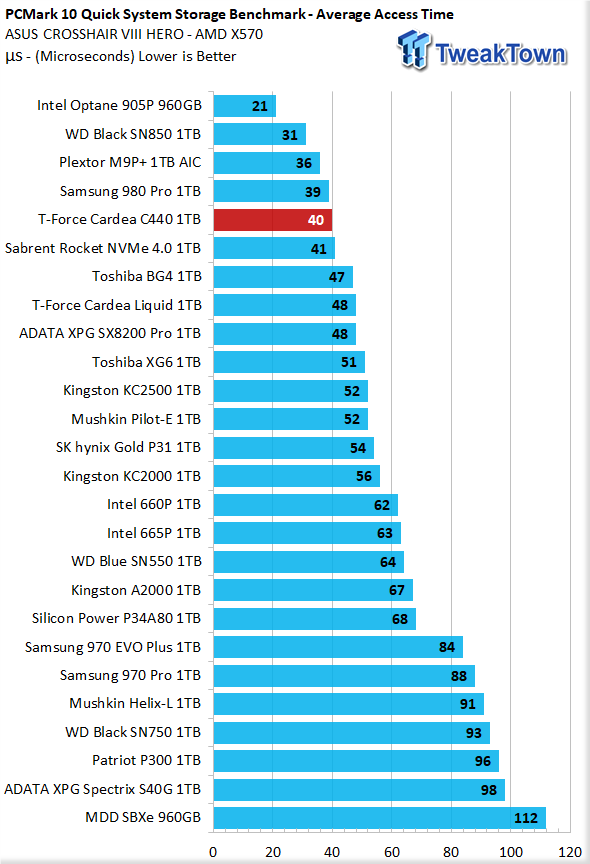
This is the test we consider our most important, and the Cardea C440 once again rises to the occasion by delivering the first 400 MB/s bandwidth from an E16 powered SSD. The drive's performance when running consumer type workloads is extraordinarily good and even exceeds that of Samsung's 980 Pro. Wow.
Final Thoughts
TeamGroup is well known in the enthusiast community for delivering products with class-leading performance, and that's exactly what they've done with the Cardea Ceramic C440 1TB. The drive has best-in-class performance, and as TeamGroup is known for, it does so with some extra flair. We are, of course, referring to the first of its kind ceramic cooling solution. The ceramic plate/label is as effective as advertised and doesn't add to the drive's cost in any significant way. Nice.
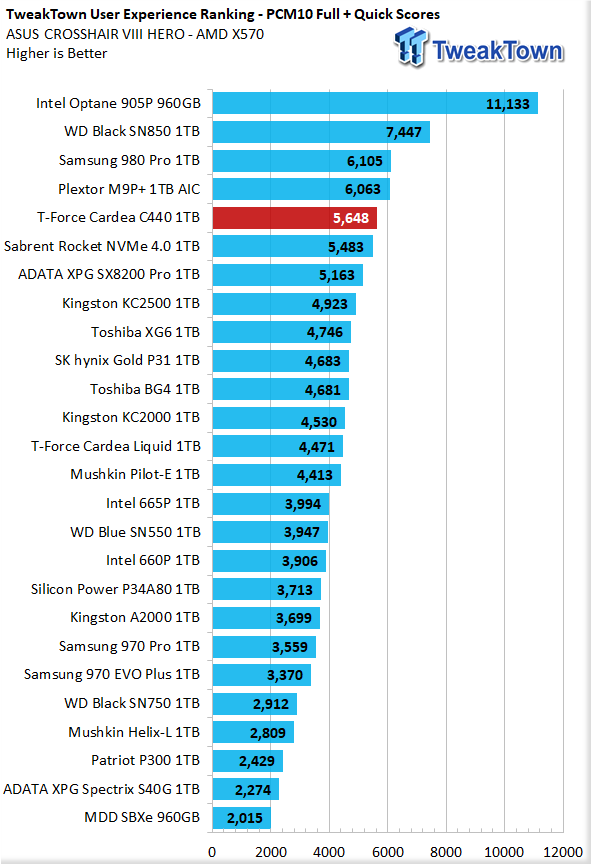
As we see it, everything comes down to user experience being the most important factor when choosing your next SSD and the Cardea Ceramic delivers it by the ton. In fact, it might be the drive with currently the best price to user experience ratio on the market today.
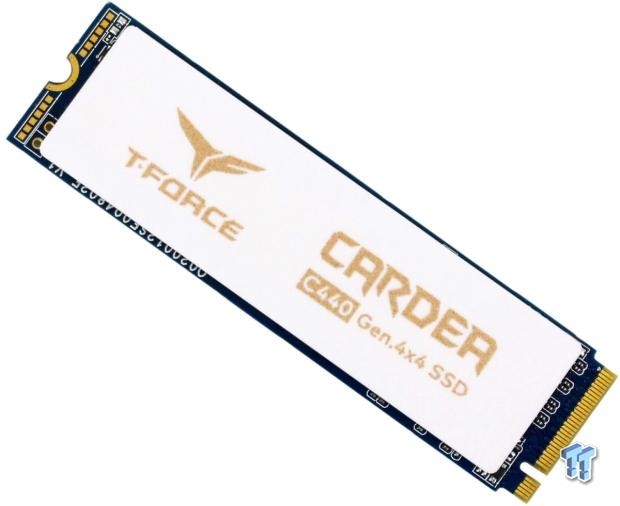
Noteworthy highlights include 5,000 MB/s sequential write when tested against CDM. An Anvils total score of over 21.5K. Sequential read speeds of over 5.6 GB/s when reading wholly compressible data as served up by ATTO. A read transfer rate of 2.995 MB/s as tested with DiskBench and our custom data block. Lastly and most importantly, the TeamGroup Cardea Ceramic C440 1TB demonstrated that it will deliver best-in-class consumer workload performance.
TeamGroup's Cardea Ceramic C440 1TB has clearly demonstrated that it is worthy of TweakTown's highest award.
Pros
- Transfer Rates
- Workload Performance
- Endurance/Warranty
Cons
- None

Performance |
99% |
Quality |
100% |
Features |
95% |
Value |
95% |
Overall |
97% |
Fast, affordable and cool, the Cardea Ceramic C440 is the complete package.

What's in Jon's PC?
- CPU: AMD Ryzen 7800X 3D
- MOTHERBOARD: GIGABYTE AORUS Master X670E
- RAM: Kingston Fury Renegade 7200MHz 32GB
- GPU: ZOTAC AMP Extreme GeForce RTX 4090
- SSD: Crucial T700 2TB Gen5
- OS: Windows 11 Pro
- COOLER: Lian Li Galahad 360 AIO
- CASE: Lian Li Lancool III
- KEYBOARD: Corsair K65 RGB Mini
- MOUSE: SteelSeries AEROX 5 Wireless
- MONITOR: ASUS ROG Strix PG27AQN 360Hz 1440p ULMB2
Similar Content
Related Tags

